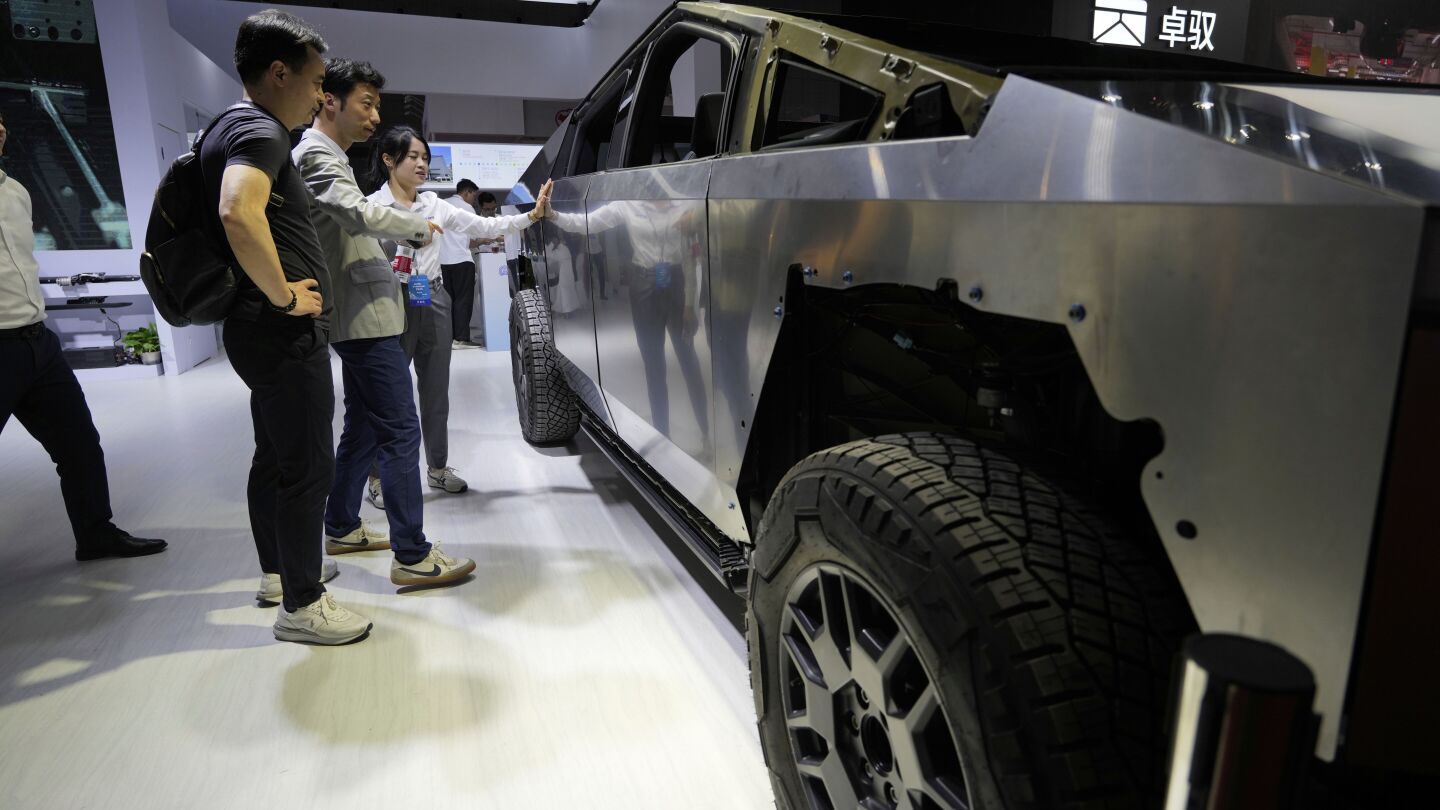Global Auto Show Sparks Debate Over US Tariffs and Market Access
The 2024 Shanghai Auto Show became a flashpoint for trade tensions as global automakers reaffirmed their commitment to international expansion while criticizing U.S. tariff policies. From April 25-May 4, industry leaders including Volkswagen, BMW, and Chinese EV manufacturers highlighted new models destined for global markets, even as they decried what they called “protectionist measures” hindering fair competition.
Automakers Decry “Artificial Barriers” to Free Trade
Executives from multiple manufacturers used their exhibition platforms to challenge recent U.S. tariff increases, particularly the Biden administration’s 100% levy on Chinese EVs and 25% duty on lithium-ion batteries. “These tariffs create artificial barriers in what should be a technology-driven marketplace,” said Volkswagen Group China CEO Ralf Brandstätter during a panel discussion. “Our industry thrives on open competition and consumer choice.”
Recent data underscores the stakes:
- The global EV market is projected to grow from $388 billion in 2023 to $951 billion by 2030 (BloombergNEF)
- Chinese automakers accounted for 60% of worldwide EV sales in Q1 2024
- U.S. tariffs have reduced Chinese EV imports by 78% since 2022 (Peterson Institute)
Diverging Perspectives on Trade Protectionism
While international manufacturers criticized the tariffs, some American industry representatives defended them. “The U.S. needs time to build domestic capacity and prevent market flooding,” argued Auto Alliance spokesperson Jessica Caldwell. “These measures aren’t permanent, but they’re necessary during this transition period.”
Chinese manufacturers presented counterarguments through product demonstrations. BYD showcased its Seal sedan with a 650km range priced at $28,000—less than half the cost of comparable U.S. models. “When consumers see the technology and value we offer, political barriers become harder to justify,” said BYD Executive Vice President Stella Li.
Technological Innovation vs. Political Considerations
The auto show floor revealed stark contrasts between regulatory environments. European and Asian manufacturers displayed:
- 15 new EV platforms with bidirectional charging capabilities
- 8 solid-state battery prototypes nearing production
- 12 autonomous driving systems exceeding Level 3 standards
“The irony is that tariffs meant to protect domestic innovation may actually slow it down,” noted MIT mobility researcher Dr. Alicia Chen. “Global competition drives faster advancement—we’re seeing Chinese firms innovate at nearly twice the pace of Western counterparts in battery tech.”
Supply Chain Realities Complicate the Picture
Behind the polished exhibits, supply chain data reveals deeper interdependence:
- 78% of battery-grade lithium processing occurs in China
- U.S. automakers source 43% of rare earth metals from Chinese-affiliated operations
- European brands maintain 28% higher parts inventories to navigate trade barriers
“We’re caught between political posturing and operational realities,” confessed a BMW supply chain director who requested anonymity. “Our South Carolina plant uses Chinese battery components because alternatives don’t exist at scale.”
What Comes Next for the Auto Industry?
The auto show debates highlighted three likely developments:
- Regional production shifts: More manufacturers will establish local assembly to circumvent tariffs
- Technology partnerships: Cross-border joint ventures for battery and software development
- Consumer pressure: Buyers may reject price hikes caused by trade restrictions
As the dust settles in Shanghai, industry analysts suggest the tariff debate marks just one battle in a larger war. “The real competition isn’t about trade policies—it’s about who can deliver affordable, desirable EVs at scale,” said Bernstein auto analyst Eunice Lee. “That race is still wide open.”
For consumers and policymakers alike, the coming months will prove critical. Will trade barriers protect domestic industries or inadvertently cede technological leadership? The answer may determine the next decade of automotive evolution.
See more Business Focus Insider Team

